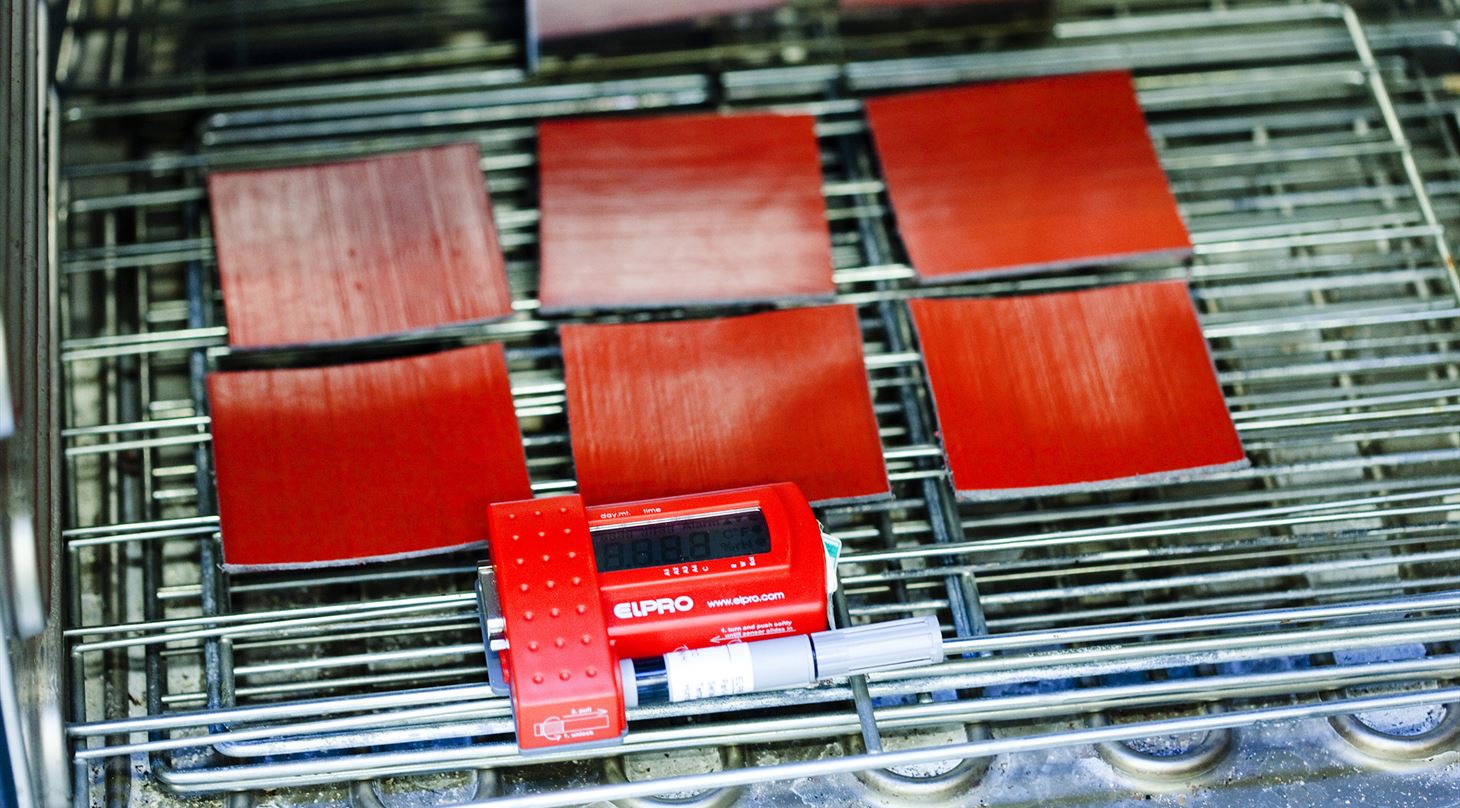
Accredited testing of plastic materials - Paint and corrosion
Select Page
We advise businesses on surface coatings and can test whether your product has or will have a surface that is well protected against corrosion and, at the same time, resistant to moisture, chemicals, temperature, and wear.
Salt spray testing is the most important test to document a product’s corrosion resistance, and the Danish Technological Institute is accredited by DANAK to expose and evaluate in accordance with a range of validated tests.
If you are changing procedure or formula for corrosion, we recommend that the lifetime test be conducted comparatively, and may include salt spray testing as well as possible SO2 exposure, humidity chamber testing, and prohesion testing (cyclic salt spray testing).
How can the Danish Technological Institute assist you?
Our surface laboratory offers a wide range of analytical methods for physical and chemical characterization of surfaces. The tests are performed as part of failure analysis, product development, product approval, and documentation.
- Characterization and identification of surfaces, paint materials, and lacquers
- Corrosion and lifetime testing, including salt spray testing, SO2 exposure, humidity chamber testing, and prohesion testing (cyclic salt spray testing)
- For testing surface resistance to weathering, the laboratory’s facilities include accelerated laboratory tests such as WeatherOmeter and QUV testing
- Testing of furniture and kitchen component surfaces in relation to DS/INF/32, including resistance to liquids, heat (dry and humid), impact, and scratches
- Traditional paint analyses such as coating thickness, gloss, color, solids content, coverage, and abrasion resistance
- Documentation in the form of accredited test reports
- Advice on requirements for corrosion classes offshore and in other industries